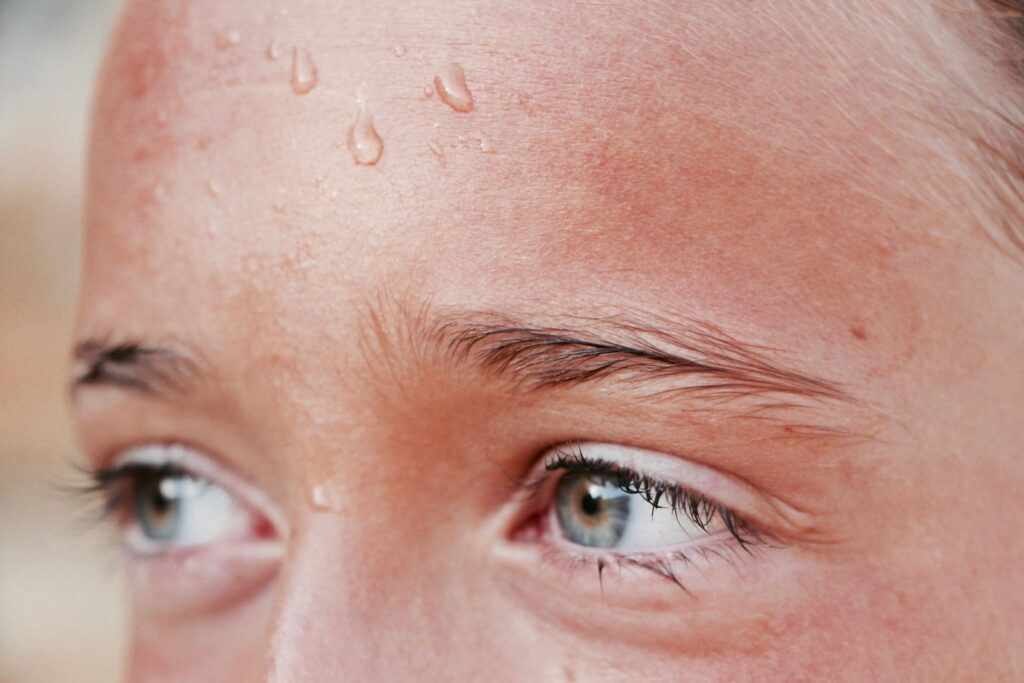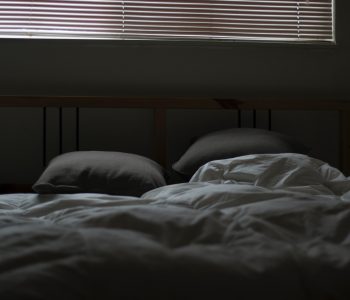 Uncategorized
Uncategorized
Not Feeling Chill? How to Handle Summer Anxiety
Feeling more anxious than usual lately? You’re definitely not alone. Everyone seems to be out here trying to live their best “carefree summer life,” but your heart is racing, your sleep is a mess and the heat makes you feel like you’re walking around in a pressure cooker! Sound familiar?
Take a deep breath.
Summer anxiety is real. You’re not being dramatic and nothing is wrong with you. If you’re wondering why anxiety actually gets worse in summer, there are some pretty solid reasons. Most reasons for summer anxiety are attributed to your body, brain and environment. Let’s unpack why this happens and how you can feel more grounded and in control.

Heat Can Feel Like Anxiety – and Trigger It
This one’s obvious – it’s hot! When we overheat, our body starts doing pretty crazy things! Our heart rate speeds up, we sweat, and our nervous system goes on high alert. Guess what…those are classic symptoms of anxiety. The connection between anxiety and hot weather is often overlooked. However, the overlap in physical symptoms – like racing heart and sweating – can be very triggering.
If you already struggle with panic attacks or health anxiety, this can create a cycle:
You’re hot -> you panic about being hot -> your heart rate stays elevated -> your anxiety ramps up -> you sweat more -> repeat.
If you’re trying to figure out how to manage anxiety in the summer heat, it starts with taking care of your body.
Try this:
- Stay hydrated.
- Take cold/cool showers.
- Carry an ice pack or cooling towel.
- Wear loose, breathable clothing.
These small steps can help regulate your body so your brain doesn’t spiral into “danger mode.”
Remember: Your body is supposed to do this when it’s regulating temperature – just like during exercise. It does not mean danger.

Sleep Struggles = Emotional Chaos
Disrupted sleep throws everything off. Summer means longer days, later nights, more screen time, and less deep sleep. All of this sends your stress response into overdrive. Lack of sleep boosts cortisol (your stress hormone) and lowers your emotional threshold. Basically, even small stressors start to feel enormous.
✅ Try this:
- Stick to a consistent sleep schedule – even on weekends.
- Use blackout curtains or a sleep mask.
- Dim lights an hour before bed.
- Put the phone down – pick up a book or something to your brain and nervous system instead.
Routine Disruptions? Anxiety Hates That
Travel, kids home from school, less structure…it’s no wonder your nervous system feels all over the place. Anxiety thrives on predictability. When your routine falls apart, it can take your sense of stability with it.
Even if the changes are fun or exciting, your brain may still read them as “disruptive.”
✅ Try this:
Create micro-routines. These small, grounding habits help create a sense of normalcy:
- Enjoy your morning coffee in silence
- A daily gratitude practice
- 5-minute journal
- A short walk or podcast break
Sensory Overload Is Real
Loud music. Crowds. Constant sunlight. Jam-packed social calendars. Summer can feel loud, emotionally and physically. If you’re feeling overstimulated, emotionally tapped out, or irritable, your rain is likely overwhelmed.
✅ Try this:
- Schedule quiet time like you would any other commitment.
- Use sunglasses, noise-canceling headphones, or take solo drives.
- Say “no” to plans that don’t align with your energy level.
You’re Allowed to Feel Anxious in Summer
If you judge yourself for feeling “off” during a “happy and carefree” season – pause right there.
You’re not failing.
You’re not broken.
You’re just human.
Anxiety is your brain’s signal that something needs care. Respond to it the way you would to a struggling friend- with compassion, not criticism. You don’t have to fix everything. Just listen to your body and mind. Honor what they need and takes small steps to soothe your system.
Summer Anxiety Toolkit
Here are a few things to try if summer anxiety starts creeping in:
- 💧 Drink water. I know it sounds basic, but it really helps.
- 🛏️ Protect your sleep like it’s your job. Seriously…your body needs it.
- ❌ Say “no” to plans that drain you.
- 🌱 Ground yourself with your senses – nature, music, smells, movement, etc.
- 💛 Practice self-compassion when the inner critic starts speaking up.

Final Thought: You’re Not Weak If Summer Gets Hard
You’re allowed to reclaim summer in a way that works for you. These tips won’t fix everything overnight – but they can help you feel a little more calm, a little more grounded, and a little more in control.
And, if you’ve tried everything and still feel stuck? That doesn’t mean you failed – it just means it might be time for extra support. Cognitive-behavioral therapy is a powerful tool for managing anxiety. Help is always there when you’re ready.
